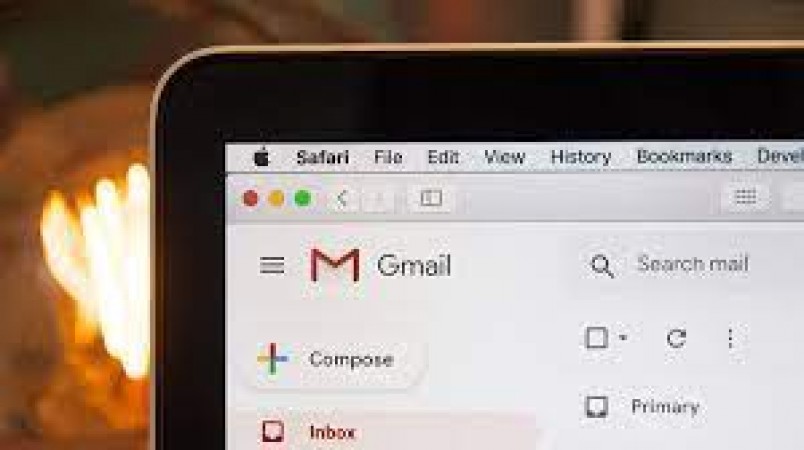
In today's digital age, where our lives are intricately woven with online activities, safeguarding our email accounts is of utmost importance. Google's Gmail, being one of the most widely used email services globally, demands a proactive approach to ensure the safety and security of your account. Let's delve into each crucial step, elaborating on why and how you should implement these measures to shield your Gmail account from potential deletion or unauthorized access.
A strong password is the first line of defense for any online account, and Gmail is no exception. Regularly updating your password adds an extra layer of security by preventing unauthorized access. Choose a combination of uppercase and lowercase letters, numbers, and symbols for a robust password that is challenging to crack.
Two-Factor Authentication (2FA) is a powerful tool that adds an additional layer of security to your Gmail account. By enabling 2FA, you ensure that even if someone manages to obtain your password, they would still need a secondary form of verification, typically sent to your mobile device, to access your account.
Periodically reviewing your account activity provides insights into the usage patterns of your Gmail account. Google offers a comprehensive activity log that allows you to monitor sign-ins, devices used, and locations. If any suspicious activity is detected, you can take immediate action to secure your account.
Account recovery information, such as alternative email addresses and phone numbers, plays a crucial role in regaining access to your account in case you forget your password or get locked out. Ensure that this information is up-to-date and accurate.
Over time, you might have granted various third-party apps access to your Gmail account. Regularly review and manage these app permissions. Remove access for any apps or services that you no longer use or trust to minimize potential security risks.
Phishing emails are deceptive attempts to trick individuals into revealing sensitive information. Stay vigilant and avoid clicking on suspicious links or providing your password in response to unsolicited emails. Remember, Google will never ask for your password via email.
Google provides security alerts that notify you of any unusual activities or potential security risks related to your account. Regularly check and respond to these alerts promptly to maintain the security of your Gmail account.
Social engineering attacks involve manipulating individuals into divulging confidential information. Be cautious of unsolicited requests for personal or account information and verify the authenticity of communications before responding.
The security of the devices you use to access Gmail is paramount. Ensure that your devices have updated antivirus software, and keep your operating system and applications up-to-date to patch any vulnerabilities that could be exploited by malicious entities.
Gmail provides a feature that allows you to review the list of devices connected to your account. Regularly check and remove any unfamiliar or unauthorized devices to ensure the integrity of your account.
Knowledge is a powerful tool in the realm of cybersecurity. Stay informed about the latest security best practices to understand evolving threats and how to mitigate them effectively. Continuous learning is key to maintaining a secure online presence.
Data loss can occur for various reasons, including accidental deletion or hacking. To prevent the loss of crucial emails, regularly create backups. Google provides options for exporting and archiving your data securely.
If you come across phishing or suspicious emails, take proactive steps by reporting them to Google. Reporting such incidents not only helps protect your account but also contributes to the overall security of the Gmail community.
Software updates often include security patches that address vulnerabilities. Regularly update your web browser and email client to ensure that you have the latest protections against potential threats.
When accessing your Gmail account, prioritize using a secure and encrypted connection. Avoid public Wi-Fi for sensitive operations, as public networks may expose your data to potential unauthorized access.
Google's Security Checkup is a valuable tool that allows you to review and enhance your account's security settings. Take advantage of this feature to ensure that you are utilizing all available security measures effectively.
Familiarize yourself with Google's policies regarding account security and usage. Adhering to these guidelines not only ensures your compliance but also contributes to creating a safer online environment for all users.
Organizing your emails through filters can help you manage and categorize your messages effectively. This not only enhances your email experience but also allows you to identify and respond to important messages promptly.
Public computers may lack the necessary security measures, exposing your account to potential risks. Whenever possible, avoid using public computers for sensitive operations to minimize the risk of unauthorized access.
The online landscape is dynamic, with new threats emerging regularly. Periodically review and update your account's security settings to align with the latest security recommendations. This proactive approach ensures that your account remains resilient against evolving threats. By diligently following these twenty steps, you significantly reduce the risk of your Gmail account being compromised or deleted. Remember, in the realm of cybersecurity, proactive measures are your best defense. Stay vigilant, stay secure!
IIT Bombay Students File Police Complaint Over Alleged Pro-Hamas Statements
Justice DK Upadhyay: "Let Mumbai Not Become Delhi," Limits Diwali Crackers Time
Congress Threatens Transformation of Scindia's Palace in MP Elections: Raj Babbar's Bold Proposal